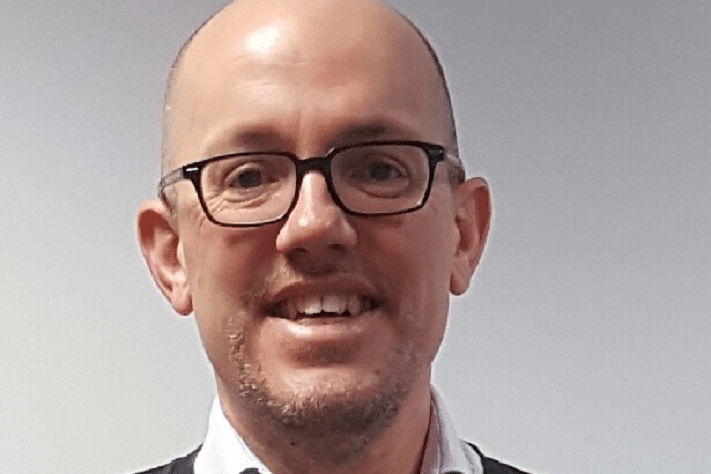3rd December 2020
During National Grief Awareness Week #NGAW20, a Voices blog by Marc Harder, National Bereavement Care Pathway Programme Lead at Sands, about the National Bereavement Care Pathway and Health Visiting.

Marc Harder, National Bereavement Care Pathway Programme Lead at Sands
Perhaps through current necessity, we are, as a nation, getting slowly better at talking about grief. National Grief Awareness Week gives us a great opportunity to raise awareness of bereavement and to think particularly hard about the support we can put in place for those experiencing the triple-whammy of isolation that COVID-19, the winter season and raw grief can bring. Support and guidance is available for Health Visitors and other professionals, though.
On average, around 14 families a day in the UK are bereaved of a baby who is stillborn or dies neonatally, which means that an additional 400+ families this month will start a journey of grief for the longed-for baby that won’t be coming home for Christmas. Add to that the number of miscarriages, termination for foetal anomaly, or sudden and unexpected death of infants, and that number becomes thousands rather than hundreds. Arms that would have held their precious baby are empty, a new Moses basket lies empty, lives lie empty.
And it is for this reason that care for these families at the time that they need it most is so, so vital.
The National Bereavement Care Pathway for pregnancy loss and the death of a baby was established to ensure that consistently high standards of bereavement care are provided by healthcare professionals across the country to women, their partners and families.
And it’s not just in hospitals where families need care most – indeed, the Baby Loss Awareness Week report in 2019 “Out of Sight, Out of Mind” highlighted that 60% of parents who experienced pregnancy or baby loss would have liked specialist psychological support for their mental health, but were not able to access it on the NHS. A recent Sands survey amongst women bereaved of a baby during the COVID-19 crisis demonstrated that only 34% felt they had all the support they needed from healthcare professionals after they went home.
The Institute of Health Visiting has been an important partner in this collaboration over the past three years. Health Visitors and other healthcare professionals in the community have a vital role to play in supporting families and can actively engage in the NBCP to ensure that high standards are maintained throughout the bereavement journey, for example:
- Standard 2 – there should be training for all staff working with families whose baby has died: The NBCP e-learning modules which the iHV helped focus on the different experiences of the death of a baby, including communication skills (“what to say”) and pathway guidance (“what to do”) and are an ideal resource for Health Visitors:
https://www.e-lfh.org.uk/programmes/national-bereavement-care-pathway/ - Standard 8 – there should be a system in place to signal that there has been a bereavement: Communication channels between hospital settings and community teams should be strong, so that gaps do not widen and messages get lost in translation, leading to a deterioration in care.
Around 60% of NHS England Trusts have signed up to the NBCP, five NHS Scotland boards are piloting the NBCP as Early Adopters and we are hopeful that Wales and Northern Ireland will also embrace the NBCP in 2021. To find out more, take a look at www.nbcpathway.org.uk or www.nbcpscotland.org.uk .
We encourage Health Visiting teams to engage with their local and regional hospital trusts in adopting the NBCP pathways and to work collaboratively to support
parents.
The Care Of Next Infant (CONI) programme has been instrumental in helping bereaved families in the community when they have another baby. The NBCP aligns with the CONI programme neatly and we are looking at developing training packages for health visitors and other professionals in 2021 that cover both aspects, so watch this space for further details.






